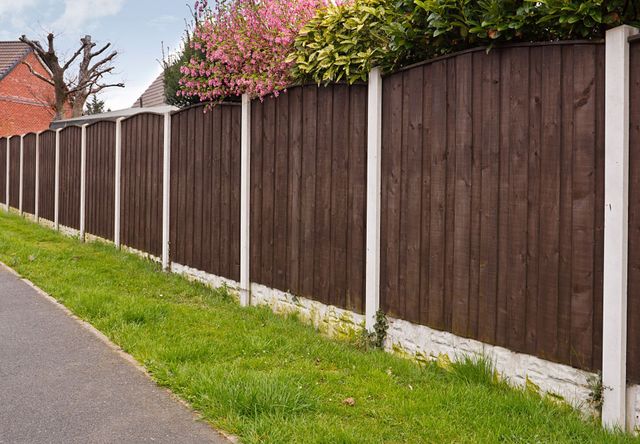All Categories
Featured

When it pertains to selecting the most effective secure fencing product for longevity, functioned iron stands apart as one of the most resilient and trustworthy options readily available. Recognized for its strength, visual charm, and ability to stand up to various weather, functioned iron is a popular option for both industrial and domestic residential properties. Yet just how does it contrast to various other fencing materials in regards to longevity and performance? Let's take a more detailed consider functioned iron fence and exactly how it stacks up against options like light weight aluminum, timber, and vinyl.
Strength and Long Life of Wrought Iron Fence. Unlike numerous various other fencing choices, wrought iron can endure severe ecological problems, including extreme warm, hefty rain, and also strong winds. Due to the fact that it is a metal, functioned iron is not vulnerable to the wear and tear that timber fencings commonly experience, such as rotting, bending, or insect problems.
Toughness: Wrought iron fences are exceptionally challenging and can endure influences and various other types of physical stress that may harm various other products. When appropriately kept, they can last for 50 years or even more, making them a financial investment that will supply long-term worth.
Wrought Iron vs. Wood Fencing. Wooden fencings, while conventional and visually pleasing, generally call for even more maintenance and have a shorter life expectancy compared to wrought iron. Timber is prone to rot, termites, and weathering gradually, all of which can jeopardize its structural honesty. On top of that, wood fencings might require to be changed or repaired every 10 to 20 years, depending upon the environment and the type of wood utilized.
Maintenance: While wood fences require to be on a regular basis treated with paints, sealants, or discolorations to preserve their appearance and long life, functioned iron fences usually need a lot less upkeep. They may need occasional cleaning or painting to prevent rust, especially in coastal or moist locations, but they will not struggle with the same types of destruction as timber.
Durability: While a well-kept wood fence could last 20 to thirty years, functioned iron can go beyond that life-span by numerous years, making it an extra resilient selection in the future.
Wrought Iron vs. Plastic Fence. Plastic secure fencing has actually come to be a preferred alternative to timber due to its low maintenance and resistance to the components. Unlike wood, vinyl doesn't rot or warp, and it does not need to be painted or dealt with. Nevertheless, vinyl can end up being breakable gradually, specifically in regions with rough winters months or severe UV direct exposure. It might crack or damage under pressure, such as from a hefty effect or a severe tornado.
Resilience: While vinyl is resistant and rather durable to rot and fading, it still can't match the lasting strength and sturdiness of functioned iron. A plastic fence might last around 20 to 30 years, relying on ecological aspects, but it lacks the architectural integrity that wrought iron provides.
Upkeep: Vinyl requires marginal upkeep contrasted to wood, but it can still discolor over time, particularly in locations with intense sunlight exposure. Wrought iron might require periodic rust avoidance treatments but typically calls for fewer interventions than vinyl.
Wrought Iron vs. Light Weight Aluminum Fence. Light weight aluminum is an additional metal choice to wrought iron, and while it shares some of the resilience characteristics of wrought iron, it is normally less durable and strong. Aluminum is extra light-weight and resistant to rust and deterioration, making it a popular selection for low-maintenance secure fencing. Nevertheless, it's not as solid as wrought iron and may be a lot more vulnerable to denting or flexing under pressure.

Resilience: Wrought iron is substantially more powerful and more long lasting than aluminum. While aluminum fencings can last for numerous decades, they may not stand up as well in high-impact or high-traffic areas. In contrast, wrought iron is much more resistant to physical damages and can much better withstand stress and force.
Upkeep: Both wrought iron and aluminum fences require some upkeep, mostly to avoid rust. Light weight aluminum is less most likely to corrosion than functioned iron, making it an extra low-maintenance alternative in locations with high humidity or seaside salt exposure.
Final Thoughts: Wrought Iron's Longevity Advantage. Wrought iron stands out as one of the most resilient fence products readily available, outmatching wood, plastic, and light weight aluminum in terms of stamina, longevity, and general performance. While it does need periodic upkeep, specifically to avoid corrosion, its ability to withstand extreme weather, physical stress, and the examination of time makes it an outstanding investment for homeowners and services looking for a lasting, secure fence remedy.
For those that prioritize toughness and long life above all else, wrought iron is an unequalled choice. Whether you're safeguarding a home, enhancing the look of your backyard, or supplying safety for a business website, functioned iron secure fencing will certainly provide years of longevity and visual charm that couple of other products can match.
Latest Posts
Uncover Affordable Auto Repairs with Montclare’s Limited-Time Service Specials
Published May 28, 25
1 min read
Recognizing When Your Car Needs Skilled Auto Repair at Montclare Auto Repair
Published May 26, 25
1 min read
Find Out Reduce Expenses on Car Maintenance with Montclare Auto Repair’s Special Deals
Published May 23, 25
1 min read
More
Latest Posts
Uncover Affordable Auto Repairs with Montclare’s Limited-Time Service Specials
Published May 28, 25
1 min read
Recognizing When Your Car Needs Skilled Auto Repair at Montclare Auto Repair
Published May 26, 25
1 min read
Find Out Reduce Expenses on Car Maintenance with Montclare Auto Repair’s Special Deals
Published May 23, 25
1 min read